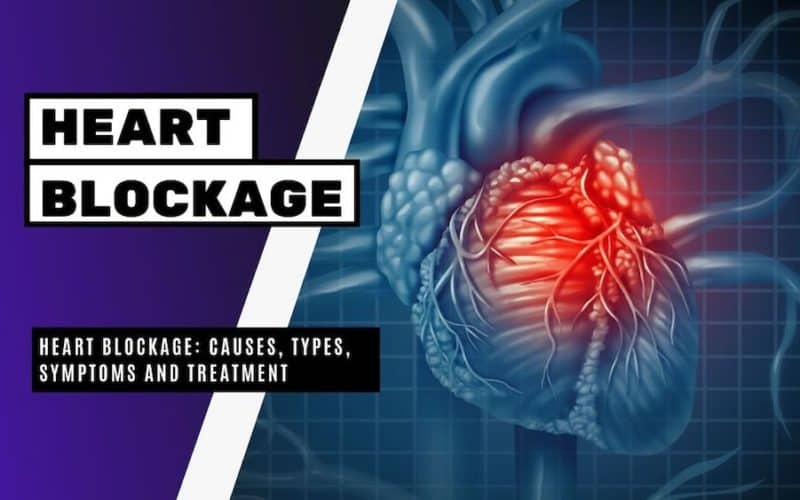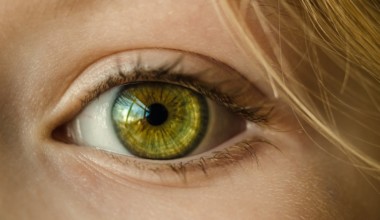The heart runs on the electrical system. Electrical signal travel from the upper chamber to the lower chamber whenever heartbeat, from that we determine the heart contraction. When the signals are slow down it may cause a condition called heart blockage. In this article, we will discuss heart blockage causes, types, symptoms, and treatment.
What is Heart Blockage
It can be explained as in the heart blockage in the conduction of the regular electrical impulses in which heart beats irregularly and more gradually than usual possibly stopping for up to 20 seconds at a time is called heart blockage.
A complete heart block is when the electrical signals stop completely. The electrical impulses will reduce 40 times per minute. Due to the heart block, the human heart does not pump blood in the circulatory system properly so that some of the organs do not function accurately such as the brain because they do not get enough oxygen.
Table of Contents
Causes of Heart Blockage
Some causes of heart blockage are smoking and the history of a patient in heart disease due to which the heart tissue damaged. If the patient has not heart blockage by birth it called acquired heart block and caused include:
- Some of the medicines
- Damaged from a heart attack,
- Any surgery that affects the electrical system of heart,
- Genes changes,
- Some heart issues such as inflammation of the heart muscle and clogged arteries.
Due to the severity of heart blockage, it can be dangerous such as due to third-degree heart block pre-existing conditions are worse for example heart failure.
Types of Heart Blockage
There are three types of heart blockage:
• First-degree heart-block does not require treatment and the least type of heart blockage. It does not show any symptoms like slight heartbeat disturbances.
• Second-degree heart block in which the patient may feel lightheaded. A patient may require a pacemaker and the ventricle may not contract, as the atrial impulse did not move the ventricles. Symptoms of the second-degree heart block include chest pain, dizziness, fainting, fatigue, nausea, shortness of breath, the feeling that your heart skips a beat.
• Third-degree or complete heart block is very general in a patient with heart disease when electrical signals in the heart stop to travel between the upper chamber and lower chambers. In which pacemaker is used for the survival of a heart attack. Chest pain, loss of consciousness, and even sudden cardiac arrest are symptoms of third-degree heart block.
Symptoms of Heart Blockage
Heart diseases consider the most common problem in males. But heart disease cause death in both male and female. Coronary thrombosis, endocarditis, or inflammation of the heart valves, cardiomyopathy, scar tissue in the heart, following surgery or a heart attack, myocarditis, or inflammation of the heart muscle conditions to increase the symptoms of heart blockage. Fainting and palpitations lightheadedness is the typical cause of heart block. Some of the symptoms of heart block in both men and women are same such as:
- Nausea
- Severe chest pain
- Cold sweat
- Squeezing and shortness of breath
- Pain in the arm, jaw, or back, and neck, discomfort in the chest
- Feeling faint
- Squeezing in the center of the chest and upper back
- Fullness
The symptoms of heart blockage in women that are different from men are feeling faint, squeezing in the center of the chest, pain in the jaw, neck, or chest, squeezing on the upper back, fullness. One of the symptoms like chest pain experienced by women is different from men as it’s like the pressure on chest and tightness.
The symptoms of heart blockage in men that are different from women are nausea, severe chest pain, cold sweat, squeezing, and shortness of breath, pain in the arm, jaw, or back, discomfort in the chest.
Besides, the men experience the pain in the left arm but women do not experience that pain. The chest pain spread into the back and lower left jaw due to which the person wakes up at night.
Also, symptoms include in third-degree heart block are cardiac arrest, dizziness, fainting, severe tiredness, irregular heartbeat or new palpitations.
Treatment for Heart Blockage
The most precise treatment of the heart blockage depends on the sign and symptoms of the patient and the seriousness of the condition. Different treatments are used in different types of heart blockage.
The physician diagnoses the patient with heart blockage by the health history, family history of heart tissue by asking questions, use of any medication, symptoms of the patient, smoking, and alcohol use in the patient.
There are many types of test by which a physician can diagnose the heart blockage. The most common test is an electrocardiogram (ECG) by which heart activity recorded. ECG created a graph by which rhythm of the heartbeat can determine the severity of heart block. The other test an electrophysiology study used to record the heart activity by the thin flexible catheters.
- First-degree heart block generally does not need treatment. It is the minutest type of heart block.
- Second-degree heart block the patient may not need any treatment such as extremely expert athletes. Many patients have symptoms so they need treatment with the pacemaker.
- Third-degree heart block is the complete blockage of heart which practically always needs treatment.
For the symptomatic second-degree heart block and third-degree heart block, the physician consults the treatment with the pacemaker. The pacemaker is the small credit card-sized battery-operated device. During a procedure performed in the electrophysiology lab, the pacemaker is fixed in the chest or abdomen under the skin. It is used to produce the electrical impulse for normal heart beating. The battery of pacemaker last for many years.
Heart blockage has different types. Different types are diagnosed with different signs and symptoms. The treatment of each type in men and women depends on the symptoms and tests. In the second and third types, the pacemaker used to produce the electrical impulse for normal heartbeat under the skin in the chest.
It is true that heart blockage is not always preventable, but the risk of heart blockage can be reduced by consuming a healthy diet, exercising regularly, enough sleep, minimizing alcohol consumption, and avoiding tobacco. Also, for any kind of chest pain or discomfort, it is advisable to contact a doctor.





